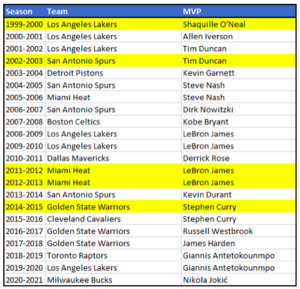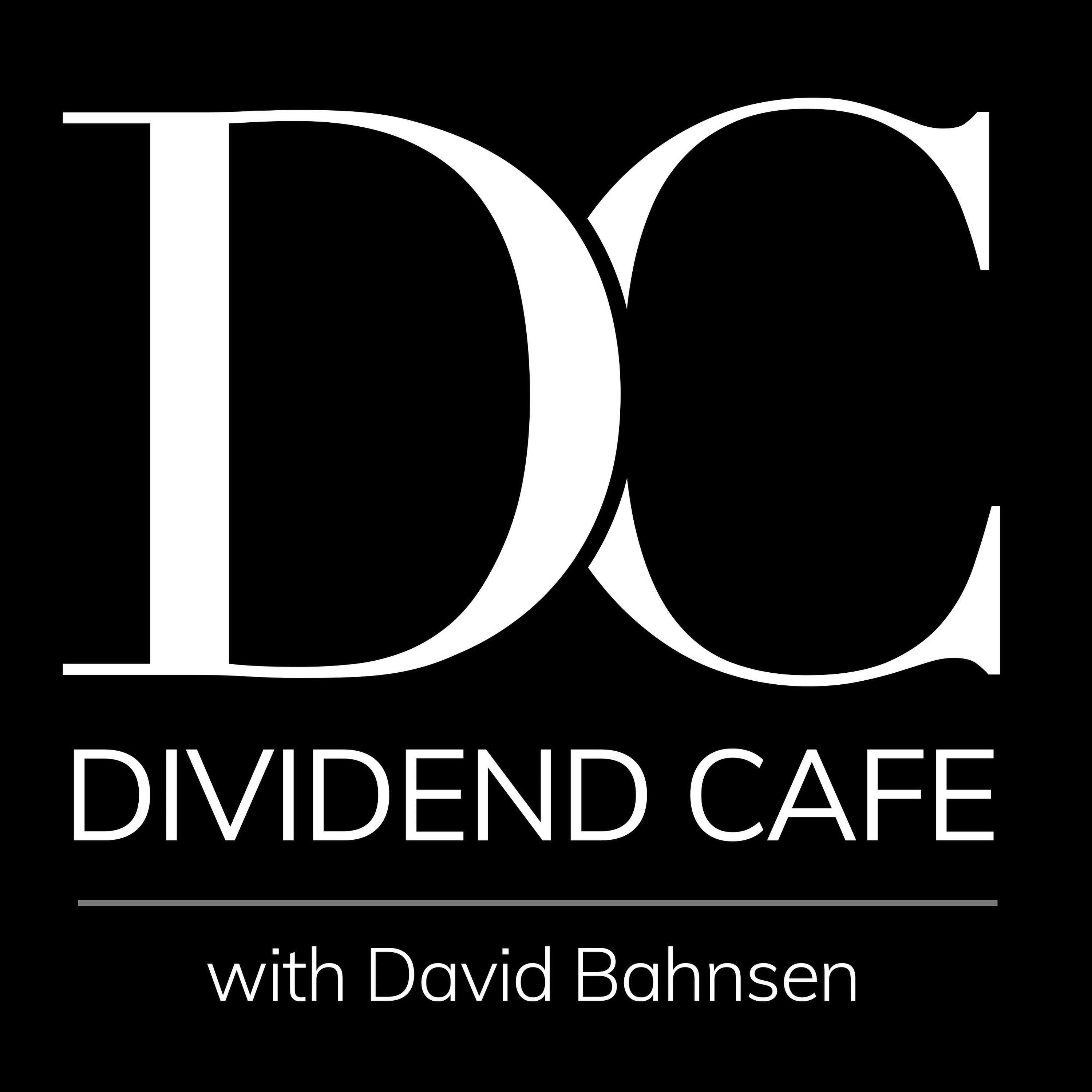Dear Valued Clients and Friends,
I am very excited to have this week’s podcast and video featuring a discussion with our entire Investment Committee on the Russia/Ukraine situation and the latest and greatest in Fed policy expectations. Brian, Deiya, and I go all over the map and I hope you will enjoy the video or podcast (depending on your own preference).
But I am even more excited to have our first guest writer in Dividend Cafe, ever, this week. Bahnsen Group partner and Director of our Private Wealth Advisor Group, Trevor Cummings, brings you this week’s column as I get a weekly reprieve as I take in some college basketball and R&R from an undisclosed destination. =) Trevor does a weekly column called Thoughts on Money and is a great writer, thinker, and leader. We are proud to have him at the Bahnsen Group and you will benefit from this week’s reading!
And I look forward to picking up where I left off Monday with DC Today … Off we go!
|
Subscribe on |
Guest Author – Trevor Cummings
The Dream Team
First off, I’d like to thank David Bahnsen for using Thoughts On Money [TOM] as this week’s Dividend Cafe, as he enjoys a shared passion of ours – watching basketball. I’ve been writing this weekly blog for some 4 years now with the goal of writing/speaking about financial concepts and principles in a kind of “straight” talk demeanor. So, if you enjoy what you read today, please do subscribe at ThoughtsOnMoney.com for my blog and podcast.
In keeping with the theme of the famed March Madness Tournament, today we are going to talk basketball, the evolution of the investment advice industry, and why you should seek out your own Dream Team. So, without further ado…
MVPs vs. Champions
It is that time of year. Yes, it is MARCH MADNESS. For some sports fanatics, this represents the best sporting event of the year. If you know me, you know I love basketball. If you know me well, you know I prefer NBA basketball over college basketball (Sorry, David Bahnsen). Although, there is one particular thing about college basketball that I do prefer – in college basketball, the fans root for the teams vs. the individual players. NBA fans will often follow their favorite players, bringing their allegiance from one team to the next as players are traded. Not college fans, they pledge their allegiance for a lifetime. A lot of what I want to discuss today is about juxtaposing teams and individuals. On that thought, my curiosity led me to ask this question, “I wonder how often the NBA MVP goes on to win the championship that same year?” Going back to the 1999-2000 NBA season, there have only been five occurrences:

*Source – Wikipedia
Basketball is a game where one player can have a BIG impact on the game, which is very different than all the other major sports – baseball, football, & hockey. Think about it, a team only has 5 individuals on the court, and there is no rule that would restrict one of those players from dominating the ball the entire game. Yet, even with this in mind, 77% of the time (over the last 22 seasons), the MVP did not go on to win the NBA championship. In conclusion, a player can show their heroics to win an MVP, but teams win championships.
Teams > Individuals.
Gone Broker
If you are reading this article, there is a good chance that you have a financial advisor, and there is also a good chance that your parents probably had a broker. What’s the difference? Hopefully, your advisor is giving you advice. As for the brokers of generations past, they were just “brokering” trades. One of these professions centered around guidance, while the other centered around facilitating a transaction. In the old world, you would’ve crossed your fingers and hoped you could find an MVP-type broker. You really wanted an individual that not only was competent but also had integrity. An intelligent broker with impure motives might’ve been worse than a not-so-sharp broker with strong character. Hence the birth of the fiduciary, one with a legal responsibility to act in their client’s best interest. The hope in this evolution was that this fiduciary – centering their offering around financial advice – would be able to deliver both the investment management and financial planning capabilities to their clients. Over the last decade, this is a growing movement that we have seen as more advice-givers have placed themselves out there as fiduciaries.
Great Expectations
Investors have welcomed this evolution, as there was a key shift from focusing on the practitioner’s compensation to holistic advice for the customer. This evolution brought trust; no longer a need to question advice when it wasn’t delivered in a transactional format. So, the clients naturally started to ask for a little bit more help; they invited their advisor into their financial life. The clients asked for advice on the best way to purchase their next vehicle, the right type of coverage for their property and casualty insurance, the best way to finance their grandkids’ college, and any other financial inquiries you could imagine. If a dollar sign was involved in a decision, the fiduciary financial advisor’s input was crucial and invited. The client was setting the right expectations, they wanted a full-service offering, and they wanted the advisor to play that “CFO” role for their personal finances. This led some advisors to try to be a jack of all trades, and many realized they were a master of none.
Thank You, Adam Smith
What did we learn in Econ 101? In The Wealth of Nations, Adam Smith introduced us to these concepts of division of labor and specialization. The financial advice industry now finds itself in the next phase of its evolution – clients being served by a team where the labor is divided up based on critical specializations (investment, planning, operations, insurance, etc.). No longer will even an MVP financial planner suffice; the client’s expectation should be to have a team of specialized professionals serving their financial needs.
Too Many Cooks
It’s vital that I am not misunderstood here. The goal should not be to acquire uncollaborative financial advice. The goal should be to have a team – not a group of ununified individuals – working together and collaborating on a common goal for the client. I often meet investors that say they sought out multiple financial advisors to “diversify” their advice. In my opinion, this muddies the waters. This is what we mean by that old adage, “too many cooks in the kitchen.” In this approach, you might find a diversity of opinions, but you will not find a unified plan centered around the client’s best interests. I spent my first handful of years as an advisor just trying to learn everything I could and really seeking to be an expert in all facets of finance. On this journey, I learned the language of tax, the language of insurance, and the language of estate planning. The more I learned, the more I realized I didn’t know, and the more I leaned on other experts. I gained a fluency that was important for communicating, but a Rolodex of other professionals that could serve my clients alongside me was more important. What I settled on was not “too many cooks in the kitchen,” but that there was wisdom in the counsel of many. Leaning into specialization and creating a collaborative platform was key. I learned my role on the team as a facilitator, a translator, an organizer, and a trustworthy advice giver, “point-guarding” the client relationship.
Financial Hygiene
Some new clients are surprised to hear me say that the financial checklist we will create will lay out projects that we will be working through over the next several years. You’ve heard it said that “Rome wasn’t built in a day” and that “the best way to eat an elephant is one bite at a time,” and this same mix of patience and preparation is needed in financial planning. You and your advisor will start with a long list of “to-do” items. These will range from reviewing property and casualty insurance to refinancing debt to recalibrating your investment portfolio. The next step will be to prioritize this list to what is most crucial, timely, and important to you. Then we tap on the shoulders of the experts that are the best source in assisting us in each of these areas. Again, I feel like I am very fluent in the language of finance across multiple disciplines, but I also lean on internal team members and external partners daily. I will always strive to be an MVP, but my greater desire is to win championships, which is serving clients well in my world. A 529 plan paying that last tuition bill, comforting a grieving client and knowing that their loved one had the appropriate life insurance coverage to care for the family, telling a client that they can retire tomorrow are what financial championships look like.
Practical Application
So, what does this all mean to you? For some, this may mean that you need to raise your expectations. For others, this will be the starting point of collaborating with your advisor to update your checklist and priorities – what items do you want to check off the list for 2022? Again, an easy rule of thumb is that if a decision involves a dollar sign, it’s a discussion worth looping your advisor into. If you want my advice, I would say it this way – in my experience, the most engaged clients will derive the most value from their advisor relationship. There is some truth to that “squeaky wheel” saying, and often good questions lead to great planning conversations. And that’s it; that’s what your financial dream team should look like.
The Bahnsen Group
www.thebahnsengroup.com
This week’s Dividend Cafe features research from S&P, Baird, Barclays, Goldman Sachs, and the IRN research platform of FactSet












